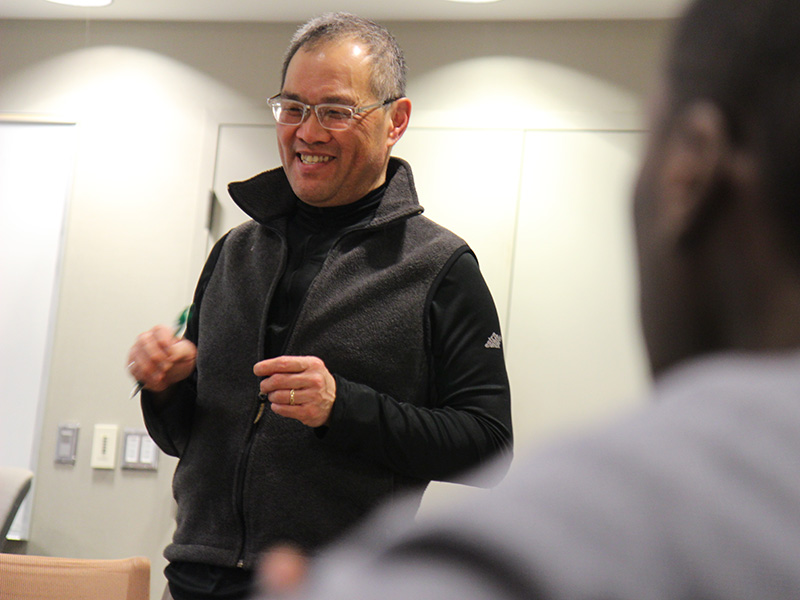
The College of Engineering and Computer Science (ECS) is proud to announce Professor Shiu-Kai Chin as the recipient of the Chancellor’s Medal, the University’s highest honor. This award is presented to individuals who have made outstanding contributions to Syracuse University and the world. Chin’s research has greatly impacted the field of computer security and he remains a leading figure in trustworthy computer system research. He is currently the Laura J. and L. Douglas Meredith Professor for Teaching Excellence and professor of electrical engineering and computer science.
“It’s a huge privilege. I owe so much to this university and the wonderful people here,” says Chin. “I’m very pleased and proud to receive the Chancellor’s Medal. My obligation is to pay things forward.”
In 1969, when Chin was a high school junior attending camp, he visited Syracuse University’s campus for the first time. This trip would influence his decision to attend Syracuse for his undergraduate studies and pursue his interest in computer science and engineering, which were relatively new fields at the time. Syracuse University was one of the few research institutions that offered this curriculum, making it an easy choice for Chin to pursue his studies. He would graduate with a computer engineering degree in 1975.
Chin started his professional career at General Electric and planned to obtain a master’s degree. General Electric offered an advanced three-year engineering course which led to a master’s degree from Syracuse University upon completion, and after completing the course, Chin continued working at General Electric. However, he reconsidered after a colleague mentioned how enjoyable it was to work at Syracuse University.
“They told me they have fun at Syracuse every day. I had never associated fun and work in the same sentence,” says Chin. “I have no regrets working for General Electric. It was satisfying. The concept of work, while meaningful and important, also being fun, I’ve never had that thought.”
Chin would land a position with Syracuse University in 1986, bringing his expertise in computer security, systems assurance, and formal verification to his teaching. His research involves the use of mathematical logic for designing and verifying trustworthy computer systems. He also focuses on policy-based design and verification, with an emphasis on using computer-assisted reasoning and higher-order logic theorem provers.
Chin has received awards and honors, including the Provost Faculty Fellow, Chancellor’s Citation for Outstanding Contributions to the University’s Academic Programs and the Crouse Hinds Award for Excellence in Education. He has worked closely with Syracuse University’s Center for Information Systems Assurance and Trust, as well as the Institute for National Security and Counterterrorism. He has also written multiple publications on his research, worked with the Air Force’s trustworthy systems and hardware-based security and collaborated with JP Morgan Chase on transaction security.
When Chin reflects on his career at the University, he finds joy in conducting his research but also in seeing his students explore and discover on their own.
“I love the exuberant, optimistic energy and excitement that new students carry. It reminds me of when I was a student as well. It happens every year when a new batch of students come,” he says. “I also love it when students come back and want to meet with me and tell me what happened after they graduated. That’s what makes faculty life so remarkably satisfying.”
Though Chin is retiring from the University, he will continue research efforts with the government and corporations and has some active proposals that are under consideration with the Air Force. He also has a CRADA (Cooperative Research and Development Agreement) with NSA in mission assurance, cybersecurity and trustworthy AI in security, all of which he looks forward to completing.
“Syracuse was the first institution that made me feel at home. I never had to explain myself. The faculty in the college understood me. I’m very fortunate that Syracuse University took a chance on me.”
